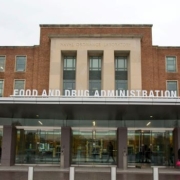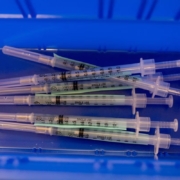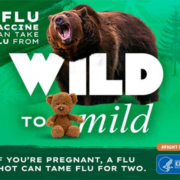Despite slowdown in COVID, Pfizer promises growth
Despite slowdown in COVID, Pfizer promises growth
Pfizer forecasted stable growth in the coming years, driven by a strong product push to cushion its non-COVID business and exclusivity losses, according to company chairman and Chief Executive Officer Albert Bourla, M.D., Monday.
Speaking at a fireside chat at the 41st annual J.P. Morgan Healthcare Conference, Bourla said that the upcoming wave of product launches would be the biggest in the company’s history and, coupled with other business development opportunities, form the foundation of what he believes is a strong growth strategy for Pfizer.
Here is a rundown of the company’s predictions:
- Pfizer’s non-COVID business will continue growing at 6% until 2025. In its 2019 annual review, the company previously set the 6% risk-adjusted 5-year compound annual growth rate target for itself.
- In 2025, Pfizer’s non-COVID business will be valued at $52 billion. If the company continues to grow at 6% until 2030, Pfizer will grow to around $70 billion.
- The next 18 months will be “the most important 18 months in the history of Pfizer,” Bourla said, as the company prepares for a flurry of launches.
- From late 2022 through mid-2024, the company expects to bring 19 products to the market.
- Among these new products are the alopecia areata hopeful ritlecitinib, awaiting the FDA’s decision by the second quarter, of 2023, and Cibinqo (abrocitinib), previously greenlit for atopic dermatitis in adults, which is now awaiting approval for use in adolescents.
- Both of Pfizer’s RSV vaccines, one for adults aged 60 and older and another meant for infants through maternal immunization, are expected to launch this year following an anticipated FDA decision.
- By 2030, Pfizer expects these new launches to earn approximately $20 billion.
- Elranatamab, slated for a 2023 launch in triple-class relapsed or refractory multiple myeloma, has best-in-class potential..
- The company’s mRNA flu vaccine, scheduled for a 2024 launch, is also an exciting prospect for Pfizer, particularly as it can “unlock combination products” with COVID, RSV or other similar infectious diseases.
- Between 2025 and 2030, Pfizer’s non-COVID business expects to lose around $17 billion due to loss of exclusivity.
- Regarding COVID, Bourla said that in the foreseeable future, there will be no “scenario that COVID disappears from the world.”
- Vaccination rates, meanwhile, will stabilize at around 30% in the U.S.
- Pfizer expects to absorb substantial losses as vaccination transitions from government-supported to commercial.











